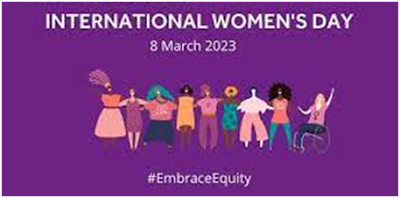Hydrogen
Hydrogen is the simplest and most abundant element
in the universe. Stars such as the sun primarily consist of hydrogen-the sun is
essentially a giant ball of hydrogen and helium gas. Today, hydrogen is
emerging as an important source of energy, and a replacement for fossil fuels,
to meet the world's ever-growing demand for energy.
History
Hydrogen energy was discovered in 1671 by Robert
Boyle. In 1776, a British scientist named Henry Cavendish noticed that hydrogen
is very flammable. Specifically, it quickly and violently undergoes a
combustion reaction with oxygen.
2H₂ + O₂ → 2H₂O + heat
Hydrogen and oxygen molecules combine to form
water. This reaction is exothermic, which means it generates heat energy.
Cavendish also noticed that hydrogen is quite a
light gas and could lift things. Eventually, people started filling massive
balloons with hydrogen and flew in them. These were called blimps and were
relatively short-lived as hydrogen was highly flammable and could cause much
damage.
The Process
Hydrogen is usually produced by separating it from
other compounds such as methane (CH4). One way of doing this is steam reform.
Commercial hydrogen producers and petroleum refineries use steam-methane
reforming to separate hydrogen atoms from carbon atoms in methane (CH4). The
steam reforming process results in some carbon dioxide (CO₂)
emissions.
The other way of producing hydrogen is electrolysis. Electrolysis is a process that splits hydrogen from water using an electric current. Electrolysis is commonly used to demonstrate chemical reactions and hydrogen production in science classrooms. On a large commercial scale, the process may be called power-to-gas, where power is electricity and gas is hydrogen.
Electrolysis itself does not produce any
byproducts or emissions other than hydrogen and oxygen. The electricity for
electrolysis can come from clean, renewable energy sources such as hydro, solar
or wind energy. If, however, the electricity for electrolysis is produced from
burning fossil fuels (coal, natural gas and petroleum) or biomass, then the
related environmental effects and emissions are more significant.
Applications
Hydrogen was used in rocket fuel in the 1950s. The ability of hydrogen fuel cells to generate electricity is a recent discovery. Energy is produced by combining hydrogen and oxygen atoms. Many different hydrogen fuel cells are available for a wide range of applications. Small fuel cells can power laptop computers and cell phones. Large fuel cells can provide electricity for emergency power in buildings and remote areas that are not connected to electric power grids.
There is also a growing interest in the use of
hydrogen to power cars. Since it produces no carbon, it is clean and harmless, even
for the ozone layer. Most hydrogen-fuelled vehicles are automobiles and transit
buses that have an electric motor powered by a hydrogen fuel cell. The high
cost of fuel cells and the limited availability of hydrogen fuelling stations
have, however, limited the number of hydrogen-fuelled vehicles.
Advantages
Hydrogen is a renewable gas due to its abundance,
which means it will never run out. Hydrogen, especially in fuel, is seen as a
clean gas, which means it does not produce any harmful gases that may be
detrimental to the environment. It is also more efficient than fossil fuels,
making it powerful. Hydrogen does not make any noise when used as a fuel, so it
causes no noise pollution. It is also highly versatile.
As technology advances, hydrogen fuel cells will
provide energy for a range of stationary and mobile applications.
Hydrogen-powered vehicles are just one example, but hydrogen could also be used
in smaller applications such as domestic products and larger-scale heating
systems.
Disadvantages
Despite being the most abundant element in the universe, hydrogen does not exist on its own, so it needs to be extracted from water via electrolysis or separated from fossil fuels. Both of these processes require a significant amount of energy to achieve. They also need a large investment. Precious metals such as platinum are required to speed up the process. The cost of storing hydrogen is also exceptionally high. Moreover, hydrogen is flammable. Therefore, it may have dangerous impacts.












